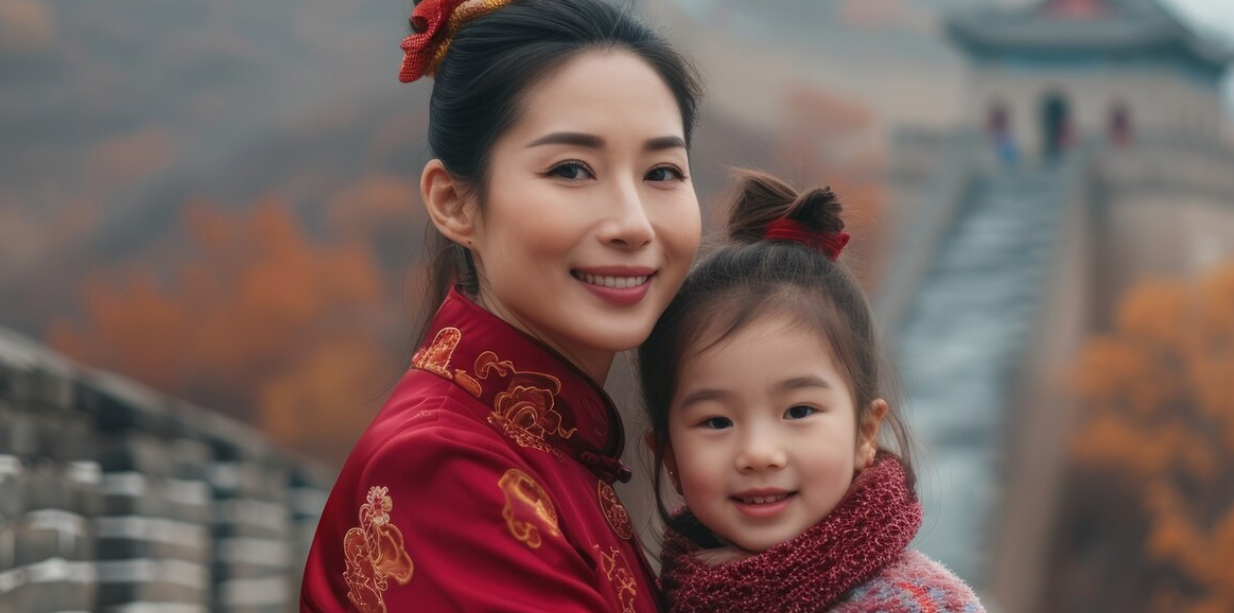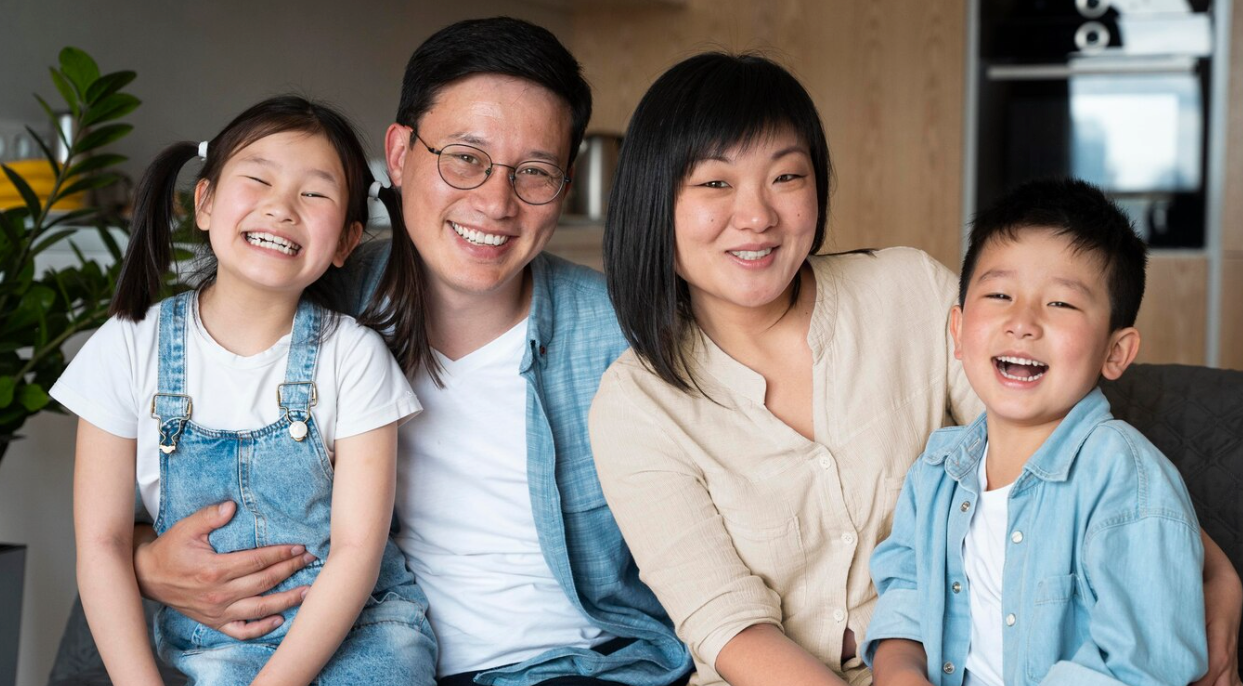For years, China’s one-child policy shaped what it meant to be a parent in the country. Families were limited in their choices, and the rule created lasting effects on demographics, culture, and the economy.
But times have changed. If you’re asking, how many kids can you have in China today?, the answer is different from just a decade ago.
In 2025, families are allowed to have up to three children, and the country is even encouraging bigger families to balance out its shrinking population.
This guide will break down everything you need to know about China’s family planning policies, from history to today’s rules, plus what it means for parents in the future.
Quick Takeaways 💡:
- Families in China can now have up to three children (policy introduced in 2021).
- The one-child policy lasted from 1979 to 2015.
- The two-child policy ran from 2016 to 2021.
- Enforcement has become more relaxed, and some regions have their own rules.
- The government offers incentives like tax breaks and housing subsidies to encourage families to have more children.
- Experts believe China may eventually remove all limits.
How Many Kids Can You Have in China in 2025?
As of 2025, the official limit is three children per married couple. This was confirmed in May 2021 when the Chinese government revised its population and family planning policy.
The new rule followed years of declining birth rates and concerns about a shrinking labor force.
It’s important to know that while the law allows three children, there are no strict penalties for exceeding the limit in some provinces. Historically, families faced heavy fines for breaking the rules, but today’s enforcement is much lighter.
Instead, the government is focusing on encouraging larger families rather than punishing them.
👉 Read Related Article: Number of Inhabitants in China Declines: 2025 Population
What Changed Since the Old “One-Child Policy”?

You may have heard about China’s strict “one-child policy.” That law was enacted in 1979 and remained in effect until 2015.
Here’s how it changed:
- 1979-2015: Most couples could only have one child
- 2016: The limit was raised to two children per couple, but not enough people started having more babies
- 2021: Three-child policy rolled out after birth rates continued to fall
- 2025: Financial incentives and other support for families are ramping up
The Shift to Two-Child Policy (2016–2021)
In 2015, China officially ended the one-child policy and replaced it with the two-child policy. This allowed couples to have two children, starting in 2016.
The government hoped this would boost birth rates, but results were mixed. Many couples still choose to have only one child due to the high cost of raising children, especially in big cities like Beijing and Shanghai.
Housing, education, and healthcare costs discouraged larger families.
👉 Read Related Article: Paternity in China: Understanding Rights & Responsibilities
The Current Three-Child Policy (2021–Present)
In May 2021, China introduced the three-child policy. Married couples can now have three children without facing penalties. This marked a major shift in population planning, showing the government’s growing concern about birth rates and an aging society.
Government Support Measures
To make raising children easier, China introduced new support programs, such as:
- Tax deductions for child-related expenses.
- Housing subsidies for larger families.
- Extended maternity leave for mothers.
- More affordable childcare services in cities.
These changes are meant to reduce financial pressure and encourage families to consider having more children.
What Happens If You Have More Than Three Kids in 2025?
Before the three-child policy, couples who broke the rules could face:
- Large fines called “social maintenance fees”
- Losing a government job
- Problems with birth registration and getting legal documents for “extra” kids
But now:
- Those fines are mostly gone (except for some rare regional exceptions)
- Having a fourth child does not mean jail time, forced abortions, or sterilization for most families (outside of controversial exceptions)
- Births must still be registered for a child to obtain legal status, enroll in school, or receive healthcare.
- Penalties are rare, but unique situations (like public employee jobs or special regions) might still have workplace consequences
Regional and Local Rules Still Matter
Some provinces or employers have unique policies that can make things more challenging for larger families.
Still, for most people, enforcement of birth limits is now either very relaxed or entirely waived.
What About Family Planning for Minorities, Single Parents, or Foreigners?

- For decades, many ethnic minorities have been allowed to have more children than Han Chinese families.
- Today, some groups face no set limit; however, there are regional differences—always check local government information if you belong to a minority group.
Single Parents and Unmarried Couples
- Most policies and incentives (like cash subsidies) apply only to married couples.
- It is often difficult for single women to register children, and they may face discrimination or other penalties.
- Major cities have begun to reconsider these rules, but as of 2025, single parenthood still presents challenges in China.
Foreigners and Cross-Border Families
- Expat families working in China follow different rules, typically based on their country of origin, employer policies, or the type of international school they attend.
- Foreigners can often adopt only one child at a time, and the legal process for adoption can be long and complicated.
👉 Read Related Article: How to Get Full Custody of a Child as a Mother: Legal Strategies
Will China Remove Birth Limits Completely?
Experts believe China may eventually end birth limits altogether. With birth rates at record lows, restrictions may no longer serve their original purpose.
Demographers predict that in the next decade:
- China could fully scrap population limits.
- More financial and social incentives will be offered to families.
- The government will shift from controlling births to supporting bigger families.
This change would be historic, reversing a policy that shaped China for nearly half a century.
Conclusion
China’s family planning policies have transformed over the past 45 years. From the strict one-child policy, to the two-child reform, and now the three-child policy, the country has moved from limiting population growth to encouraging it.
Today, the answer to how many kids you can have in China is three, but experts believe the future may bring even more freedom for families. While laws matter, the bigger question for parents is whether they can afford the costs of raising children in modern China.
China’s family planning journey is a reminder that government policy and personal choices are deeply connected. The future may belong to families who balance both.
👉 For legal clarity and expert advice on Chinese family laws, ☎️ contact Choi & Partners
FAQs: How Many Kids Can You Have in China?
What is the child limit in China?
China’s national law now allows couples to have up to three children. In August 2021, the Population and Family Planning Law was amended to lift prior fines and loosen controls, while promoting supportive measures for families. Since then, many policies have shifted from limiting births to encouraging them.
What happens if you have a fourth child in China?
There is no nationwide fine for having a fourth child since 2021, and children can be registered for household records (hukou) under updated local rules. However, many benefits and subsidies are aimed at families with up to three children, so extra support may be limited. In short, a fourth child is generally legal, but incentives may not apply.
What is the maximum child birth in China?
There is no longer a strict legal maximum with fines at the national level. Policy now permits three and removes penalties for more, while local governments focus on encouraging births. Support programs (like childcare subsidies) are expanding, but often target early children.
Do I need permission from the government to have a baby?
Today, most places do not require a birth permit like in the past. Provinces have been simplifying birth registration, and some (such as Sichuan) now let parents register any number of children, including if unmarried. Hospitals and local police stations handle routine birth and hukou registration.
Are there any penalties for having a large family in China?
The old “social maintenance fee” and related penalties were abolished in 2021, so families are not fined for having more than the policy number. Instead, China is adding pro-family incentives like childcare subsidies to encourage births. That said, many benefits are calibrated around up to three children.
Subscribe to receive updates
Subscribe to receive the latest blog posts to your inbox every week.



